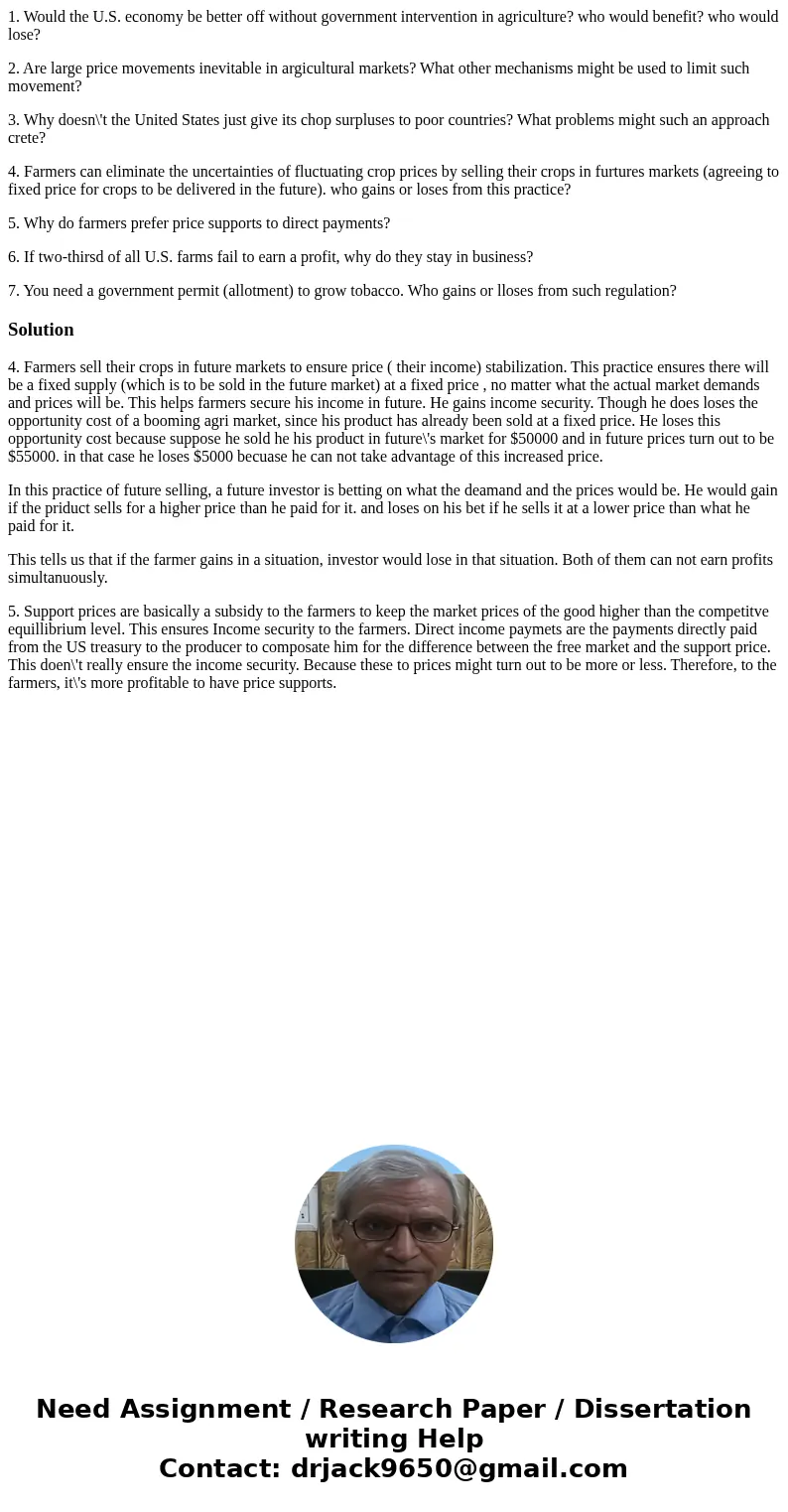1 Would the US economy be better off without government inte
1. Would the U.S. economy be better off without government intervention in agriculture? who would benefit? who would lose?
2. Are large price movements inevitable in argicultural markets? What other mechanisms might be used to limit such movement?
3. Why doesn\'t the United States just give its chop surpluses to poor countries? What problems might such an approach crete?
4. Farmers can eliminate the uncertainties of fluctuating crop prices by selling their crops in furtures markets (agreeing to fixed price for crops to be delivered in the future). who gains or loses from this practice?
5. Why do farmers prefer price supports to direct payments?
6. If two-thirsd of all U.S. farms fail to earn a profit, why do they stay in business?
7. You need a government permit (allotment) to grow tobacco. Who gains or lloses from such regulation?
Solution
4. Farmers sell their crops in future markets to ensure price ( their income) stabilization. This practice ensures there will be a fixed supply (which is to be sold in the future market) at a fixed price , no matter what the actual market demands and prices will be. This helps farmers secure his income in future. He gains income security. Though he does loses the opportunity cost of a booming agri market, since his product has already been sold at a fixed price. He loses this opportunity cost because suppose he sold he his product in future\'s market for $50000 and in future prices turn out to be $55000. in that case he loses $5000 becuase he can not take advantage of this increased price.
In this practice of future selling, a future investor is betting on what the deamand and the prices would be. He would gain if the priduct sells for a higher price than he paid for it. and loses on his bet if he sells it at a lower price than what he paid for it.
This tells us that if the farmer gains in a situation, investor would lose in that situation. Both of them can not earn profits simultanuously.
5. Support prices are basically a subsidy to the farmers to keep the market prices of the good higher than the competitve equillibrium level. This ensures Income security to the farmers. Direct income paymets are the payments directly paid from the US treasury to the producer to composate him for the difference between the free market and the support price. This doen\'t really ensure the income security. Because these to prices might turn out to be more or less. Therefore, to the farmers, it\'s more profitable to have price supports.

 Homework Sourse
Homework Sourse